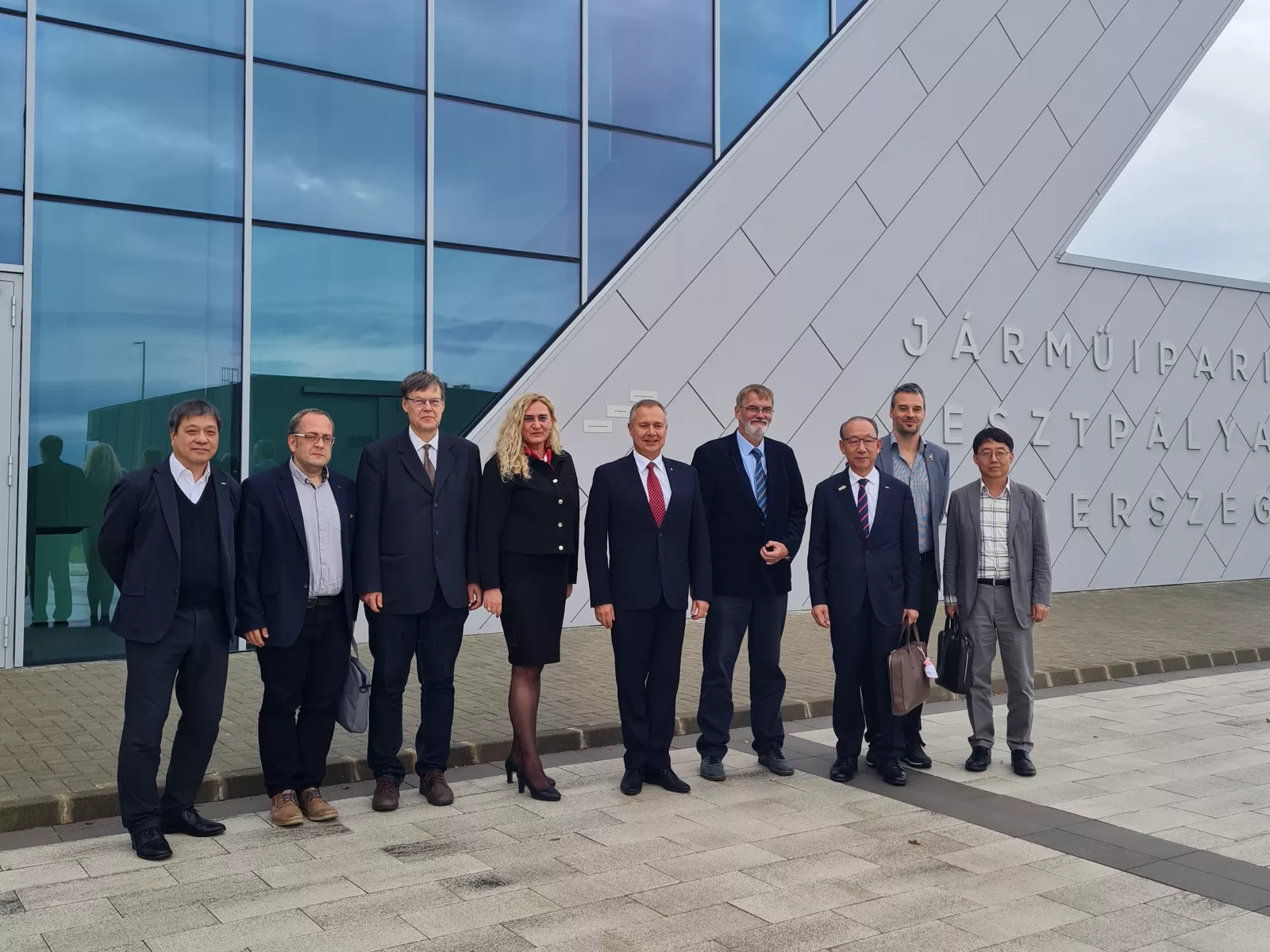
Dr. Myung-Joon KIM, President of the Electronics and Telecommunications Research Institute (ETRI) of South Korea, and his three high-ranking colleagues within ETRI visited Hungary on a scientific and research networking tour. The program of the tour was organised by the Ministry of Culture and Innovation.
During their visit, the Korean delegation met with the representatives of six national laboratories, among them also with the representatives of the Autonomous Systems National Laboratory (ARNL) and of the National Laboratory for Artificial Intelligence (MILAB). Both of these national laboratories are led by SZTAKI.
The delegation visited the Zalazone Automotive Test Track on 29 September, where they met with representatives of ARNL and MILAB after a tour of the Zalazone facilities.
Péter Gáspár, Head of the ARNL, presented the structure, mission and main research areas of ARNL. Then Bálint Vanek presented projects and results from ARNL’s research spectrum, especially those related to aviation. János Nacsa reported on robotics research carried out in and on the solutions derived jointly by MILAB and ARNL. Gábor Érdi-Krausz, Project Coordinator of MILAB, presented the activities of the national laboratory and outlined the structure of the Hungarian artificial intelligence ecosystem to the Korean guests.
The meeting with the Korean delegation was also attended by Dóra Mattyasovszky-Philipp (SZTAKI) representing MILAB and by Tamás Bécsi (Budapest Univesity of Technology and Economics) representing ARNL.
The meeting was considered useful and laid the foundation of future research and development cooperation as a wide range of research areas that are relevant for the SZTAKI and for the ARNL are studied and covered by ETRI. For these see: https://www.etri.re.kr/engcon/sub1/sub1_05.etri .
ETRI has an extensive global research and development network. In addition to research partners in the United States (e.g., IBM, Harvard University, Virgina Tech, MIT, NVIDIA, Google, Intel), ETRI has also Australian and Canadian research partners. Also research institutes and universities in several European countries (e.g., Switzerland, Germany, France, Poland) are active members of this global R&D network.